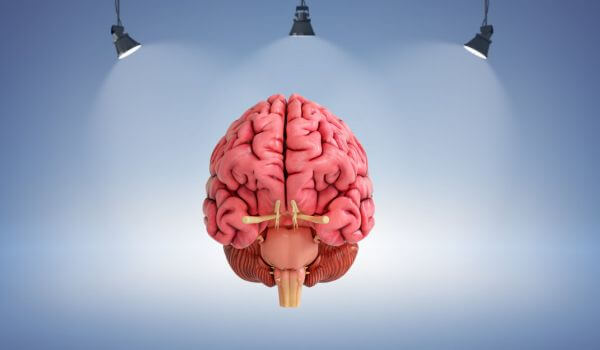
In general terms, infertility is some form of disorder of either (or both of) the male or female reproductive systems, which prevents the conception of a child or the ability of the woman to carry a pregnancy through to delivery.
There are too many possible causes of infertility to deal with in one short article, so here, we are focusing on a fairly basic problem, which is how diets, and more specifically, vitamin intake, can affect both men and women in ways that will diminish their ability to reproduce.
It’s important to understand that vitamins can play different roles in the whole fertility cycle and that the levels of the vitamin at different points in the cycle, from ovulation through fertilization to birth, may and sometimes do have different – even opposing – effects. So it’s important to look at the wider picture of how and when (and why) a specific vitamin can play some role in fertility.
Generally, the vitamins most often involved in promoting fertility are the vitamin B group (specifically B6, B9, and B12) and vitamin D.
Vitamins B, D, and Fertility
| Vitamin | Women | Men |
| B6 (Pyridoxine) | B6 is essential for regulating hormonal balance, including ovulation and menstrual cycles. It also influences the levels of progesterone, a hormone necessary for pregnancy. | B6 supports proper blood oxygenation, which is vital for sperm health and motility. |
| B9 (Folate / Folic Acid) | Folate levels are critical both before conception and during pregnancy. Folic acid is essential for egg quality and the development of a healthy fetus, and deficiency can increase the risk of miscarriage. | Folate plays a role in the process of sperm production. Low folate levels can lead to abnormalities in sperm chromosomes, increasing the risk of birth defects. |
| B12 (Cobalamin) | Deficiency in B12 can lead to irregular ovulation and an increased risk of miscarriage. | B12 deficiency can lead to decreased sperm count and motility, reducing the chances of fertilization. |
| D3 (Cholecalciferol) | D3 plays an important role in regulating the menstrual cycle and enhancing the endometrial lining, which is necessary for the implantation of the embryo. Low levels of vitamin D are also associated with polycystic ovary syndrome (PCOS), a common cause of infertility. | D3 is essential for sperm health. It influences sperm motility, morphology, and overall quality. |
Vitamins B and D have antioxidant properties that protect reproductive cells from oxidative stress. Oxidative stress can damage eggs and sperm, leading to infertility. B6 and B12 are specifically involved in synthesizing and regulating hormones, which is crucial for ovulation in women and sperm production in men. Vitamin D also influences the production of sex hormones, including estrogen and testosterone, which are essential for reproductive health.
Where do vitamins B and D come from?
The most natural sources of all forms of vitamin B are unprocessed foods, vegetables, and fruits, like beans and lentils; seeds and almond nuts; broccoli and spinach; citrus fruits, avocados, and bananas; and whole grains, brown rice, barley, and millet. Red meat, poultry, fish, eggs, milk, and cheese are all rich in vitamins as long as they are not overcooked.
Vitamin D comes in two main variants. D3 (cholecalciferol) is either made in the body from direct exposure to sunlight or artificial (ultraviolet-B) light or from the intake of foods such as fatty fish, cod liver oil, or egg yolk. Vitamin D2 (ergocalciferol) is derived from consuming fungi such as mushrooms and yeast.
What are the ideal vitamin B and vitamin D levels?
Blood tests can measure the levels of vitamins B and D. There are variations for age, gender, and general health. Still, doctors will usually look for deviations from the following standards when deciding whether supplements are necessary:
| Vitamin form | Age group | Expected level (μg/ml) | Notes |
| B6 (pyridoxine) | All | 5–50 | |
| B9 (folate) | Infants | 5–25 | Important for cell division and growth. |
| Others | 5–21 | With increased dependency during pregnancy. | |
| B12 (cobalamin) | < 65 | 200–900 | |
| Elderly | 200–900 | Higher levels may be recommended. | |
| D2 (ergocalciferol) | OK: > 30
Insufficient: 21–29 Deficient: < 20 |
||
What are the Recommended Daily Amounts (RDAs) for vitamins B and D?
- B6 – 1.5 μg/day for women and 1.7 μg/day for men.
- B9 – 400 μg/day of dietary folate equivalents (DFEs)
- B12 – 2.5 μg / day
- D – 600 µg / day, except in the case of pregnant women who have a history of neural tube defects in previous pregnancies.
About vitamin supplements
Many simple over-the-counter products can provide any missing vitamins and minerals. Remember, though, that not all advertised products will deliver what they are promising, so you should make sure to source your supplements from a qualified and ethical site that will deliver you exactly what they are advertising.
For vitamin D, the simple option of drops that can be added to any drink is offered by our own vitamin D supplement, which delivers the recommended daily dose of 400 IU.
Our recommendation for an effective vitamin B supplement is the Israeli OTC called B Card, which delivers 1,000 µg folic acid, 10 mg of vitamin B6, and 400 µg vitamin B12 in a single dose.
Guidelines on the role of vitamins in male fertility
Vitamin B
Research has shown that vitamin B12 is important in boosting sperm motility and improving sperm concentration. It also helps to prevent DNA damage in the cell nucleus.
Some studies have suggested that B12 deficiency may also be a factor in premature ejaculation, erectile dysfunction, and loss of libido.
Vitamin D
Research has shown that vitamin D deficiency affects male reproductive performance, producing defective spermatozoa with reduced chromatin integrity. According to another study, increased vitamin D levels boosted testosterone levels, and lower vitamin D levels were associated with poorer semen quality, especially sperm motility.
Guidelines on the role of vitamins in infertility
Vitamin B
Vitamin B6 and B12 not only help to promote egg health but can also promote successful pregnancy outcomes.
Folic acid (vitamin B9) helps form the neural tube from which the fetus’s brain and spinal column grow. It can also help prevent major birth defects of the brain, like anencephaly, and of the spine, like spina bifida.
Women who are trying to conceive should take a minimum of 400 µg of folic acid every day since the formation of the central nervous system in the fetus starts 3–4 weeks after conception, which may be before they become aware that they are pregnant. It may be too late to start adding folic acid to the diet to prevent birth defects.
Women who have a history of pregnancies that were affected by a neural tube defect in the fetus should take at least 4,000 µg of folic acid each day from one month before trying to become pregnant and all through the first trimester.
Vitamin D
In pregnant women, low vitamin D levels are linked to preeclampsia, gestational diabetes, and adverse pregnancy outcomes, including preterm births.
Vitamin D deficiency has been associated with a number of fertility problems, including PCOS, endometriosis, uterine fibroids, and reduced IVF success. It’s also important to remember that the infant’s vitamin D level largely depends on the mother’s levels before birth.
















